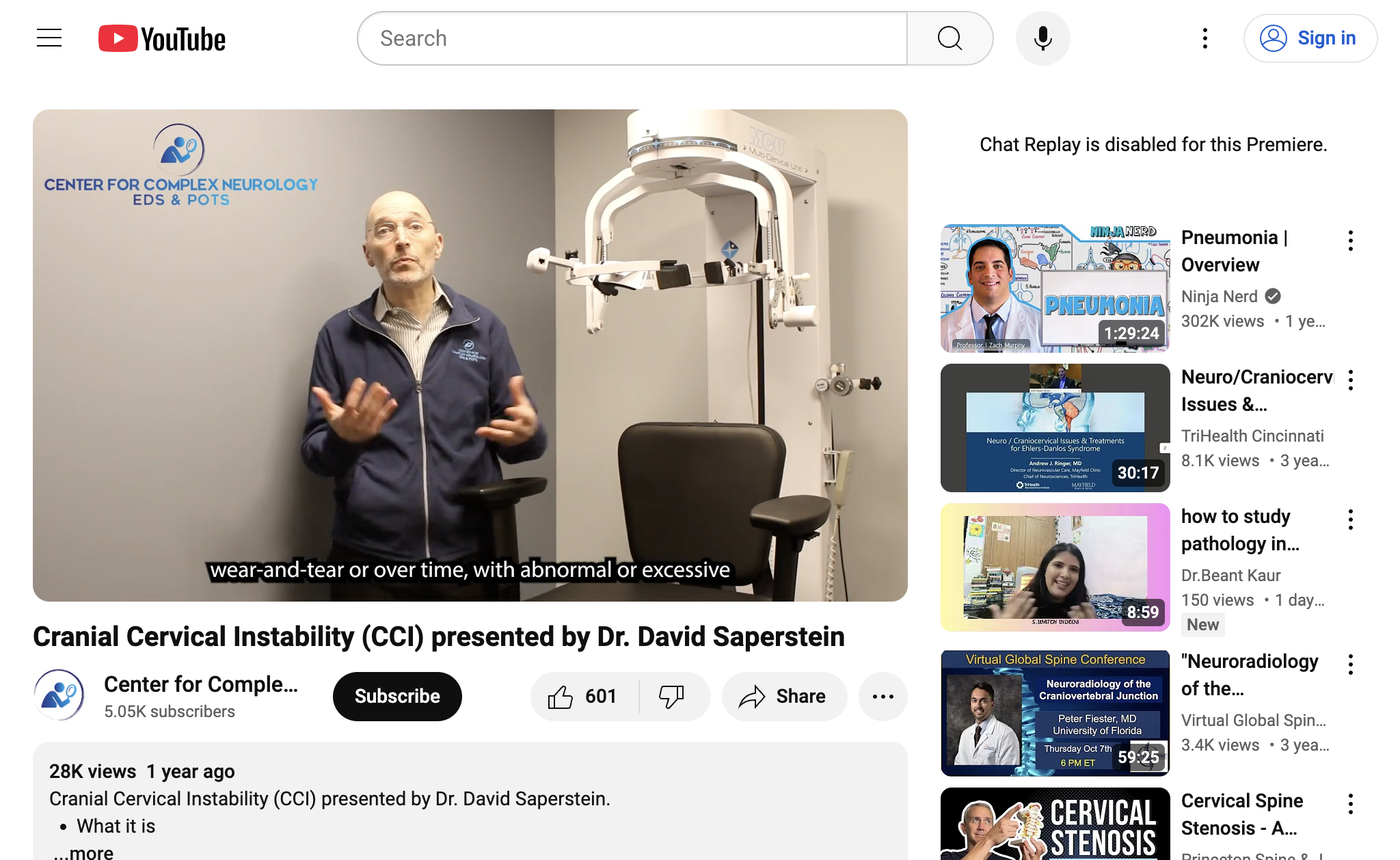Cranial Cervical Instability (CCI) presented by Dr. David Saperstein
Dr. David Saperstein discusses Cranial Cervical Instability (CCI), a condition sometimes seen in patients with Ehlers-Danlos Syndrome (EDS) due to hypermobility affecting the relationship between the skull and cervical spine. He outlines the symptoms, which can include dizziness, trouble swallowing, vision and hearing issues, headaches, and autonomic dysfunctions such as rapid heart rate and gastrointestinal symptoms. Diagnosing CCI involves a combination of symptom assessment, physical examination, and imaging techniques like MRI, with specific measurements such as the clival-axial angle being assessed. Dr. Saperstein emphasizes the importance of determining how much CCI contributes to a patient's symptoms through tests and maneuvers like traction. Treatment starts conservatively with physical therapy and may involve devices like the multi-cervical unit (MCU) to strengthen neck muscles. More invasive treatments like prolotherapy or surgery are considered if necessary. Overall, CCI should be evaluated in the context of other potential issues in EDS patients, such as autonomic disorders or Mast Cell Activation Syndrome, to ensure appropriate management.
